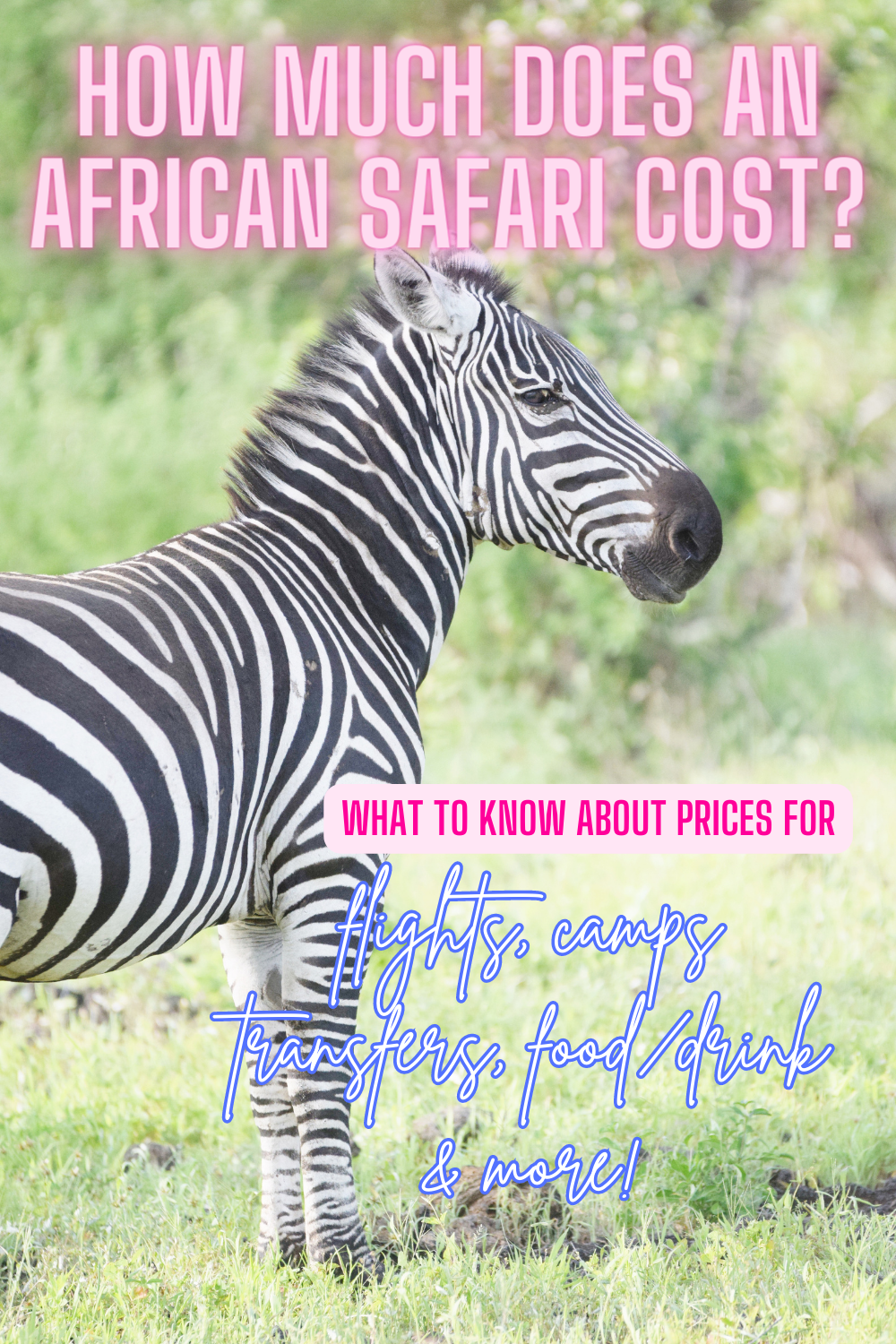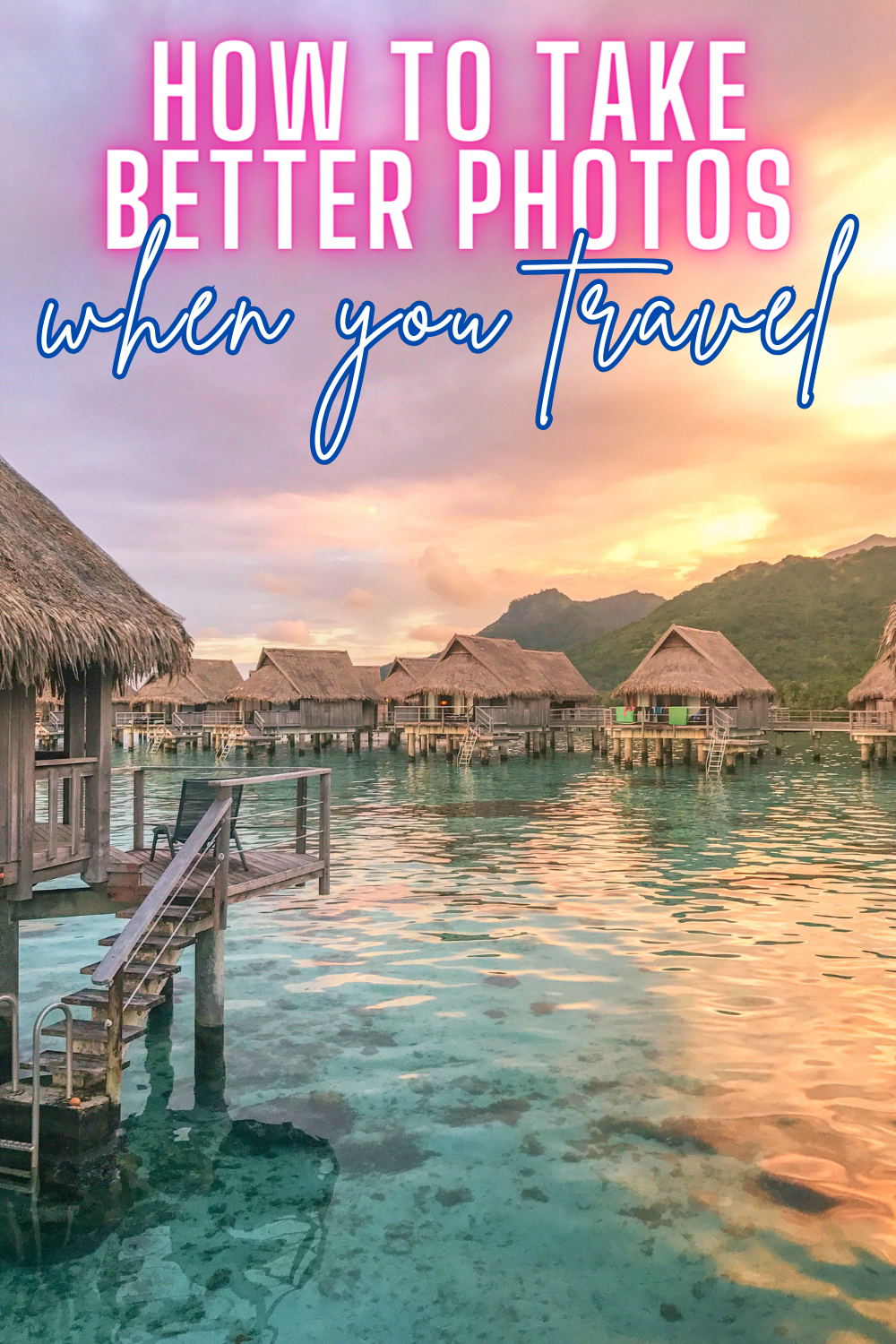Deciding to book a safari vacation is the trip of a lifetime and many may wonder, how much does an African safari cost?
Booking an African safari is a dream come true for many travelers, whether you’re adventure seekers or wildlife enthusiasts. The allure of witnessing majestic creatures in their natural habitats and stunning landscapes truly make it an experience unlike any other. However, it’s essential to be prepared for the costs associated with such a trip. With all of our African safaris, the number one question I get asked is “What is a reasonable cost for a trip like this?”.
It’s a safe bet than an African safari can cost as little as $150 per person per night or up to $1700 per person per night depending on your travel style.
Today, I’m breaking down the average expenses for an African safari, including transportation, accommodations, transfers, food and beverage, and offer some helpful tips on how to make the most of your budget.

How Much Does An African Safari Cost?
Transportation
Transportation costs can vary greatly depending on your departure location, the safari destination, and the route you take. Flights to African countries can be a significant part of the budget. In our experience, international flights can range from $800 to $2,000 or more, depending on factors like time of booking and seasonality. For intra-Africa flights, expect to pay anywhere from $100 to $500 per leg. Our most expensive flights in-country were in/around South Africa.
Accommodations
Accommodation costs during an African safari can vary based on your chosen level of luxury. Budget travelers can find basic accommodations for as low as $50 to $150 per night, while luxury lodges and tented camps can go upwards of $1,000 per night. On average, mid-range options fall between $200 and $500 per night. Definitely research and book well in advance to secure the best deals and I cannot say enough good things about working with an Africa travel specialist who can help you navigate accommodations specifically!
Transfers
Transfers between destinations and within national parks are often included in safari packages. If not, you might need to budget around $100 to $300 for transfers between airports, lodges and game reserves. Some safari operators provide shared transfers to help minimize costs.
Food and Beverage
Many safari packages include meals, but if not, you can budget around $30 to $80 per day for food and beverages. Some lodges offer all-inclusive options, which might be more cost-effective in the long run. Keep in mind that remote locations might have limited dining options, potentially increasing meal costs. This is usually flagged as “self catering” and the tab can really add up!
Safari Activities
Safari activities are the heart of your experience. Game drives, guided walks and other wildlife encounters are often included in the safari package (think horseback safari or running through the bush). However, some activities, such as hot air balloon rides or specialized guided experiences, may incur additional charges. Budget around $50 to $150 per activity, depending on its nature and duration. You can get a good idea about total cost of these items before your trip by contacting your lodge directly.
Tips to Save Money On An African Safari
Travel During the Shoulder Seasons: Consider traveling during the shoulder seasons—spring and fall—when prices for accommodations and flights are generally lower, and the weather is still favorable for game viewing.
Group Tours: Joining a group tour can significantly reduce costs, as expenses are shared among participants. It’s also a great way to meet other travelers. Some of the best people we know, we have met on safari!
Book in Advance: Plan your safari well in advance to take advantage of early bird discounts and secure the best accommodations and activities at lower rates. Again, a travel specialist like Amy (link above!) can assist you with this!
Consider Self-Drive Safaris: If you’re an experienced traveler, you might opt for self-drive safaris in certain parks. This can cut down on the cost of guided tours and transfers. I will be honest and add that we have never done this, but friends have and have reported that it’s kind of a bummer not to have a guide, but if money-saving is paramount, this is a good option!
Choose Mid-Range Accommodations: Mid-range lodges often offer a good balance between comfort and affordability. They provide a genuine safari experience without the steep luxury prices.
Limit Extra Activities: While it’s tempting to participate in every activity, be selective. Choose activities that truly resonate with you to avoid overspending on optional experiences. Our rule of thumb is one extra activity per camp.
An African safari is an investment in a life-changing experience (and I mean that earnestly) and understanding the costs involved is key to planning a trip that aligns with your budget. By carefully considering transportation, accommodations, transfers, food and beverage, and activity costs, and employing some money-saving strategies, you can embark on your dream safari adventure without breaking the bank.
If you liked this post, you might also enjoy 8 Tips For Budgeting When Planning A Safari In Kenya
 How To Spend 2 Days In Salem, Massachusetts
How To Spend 2 Days In Salem, Massachusetts How To Take Better Photos When You Travel
How To Take Better Photos When You Travel How To Choose Your Next Vacation Destination
How To Choose Your Next Vacation Destination